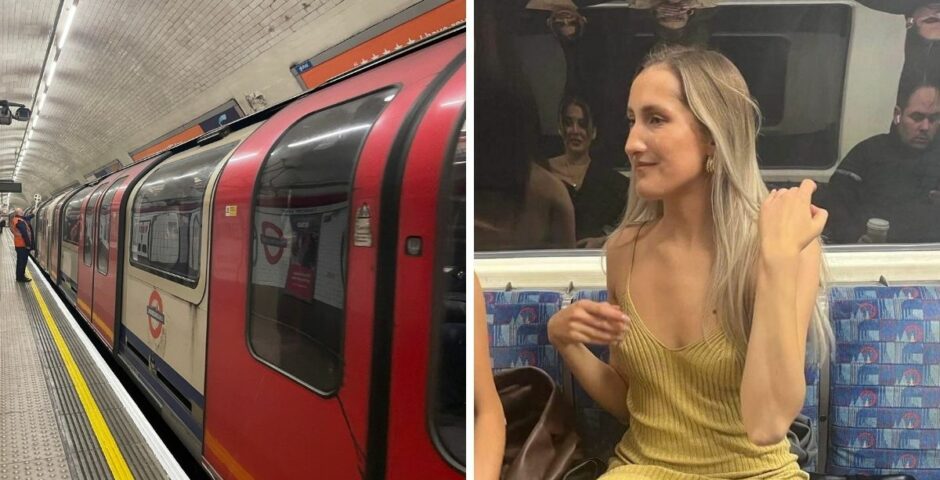
As a female King’s student living in London, why does it feel like my safety is a luxury?
No one should have to put up with being filmed whilst walking down Oxford Street
As a first year King’s student having recently moved to London, I have already experienced plenty of harassment on public transport and walking around the city. Coming from a small town in Cheshire, this has been quite a shock to the system. I can easily take my dog for a walk and not see anyone for miles. I can get on the train to my nearest city and the only comparable encounter I will have is with some teenage boys.
At the beginning of semester two, I remember being filmed walking down Oxford Street on my way to a bar on a Friday night to meet some friends. It was a group of guys in the car and they shouted something at me with their phones out. Honestly, I can’t remember what because I think I blocked it out. Afterwards, I ask myself whether some guy just posted a random video of me on their Snapchat story – thinking it’s hilarious?
Something similar happened to me again last night. I was catcalled from inside a car – they drove past and slurred the lines of “Oi Oi” as I was walking. It was uncomfortable and startled me. Upon reflection, it makes me laugh because do they really think I was going to turn around and be flattered, and smile? Definitely not.

It seems that many similar experiences are happening to other women whilst they travel around London, with women taking to TikTok to share their own experiences through tear-stained videos. Two of these that particularly stuck out were by Nicole and Katie, two young women also living in London who told their stories of harassment they had faced on public transport.
Nicole shared how a man approached her on the tube, firstly asking questions such as, “what book are you reading?”, before progressing into remarks such as “you’re so sexy” and “I would go to prison for you”. Katie had a similar experience when two older men approached her on the tube under the guise of asking for directions to Crystal Palace. This then quickly became more sexual and one of them tried to kiss her. Katie claims that despite other people being in the carriage, no one offered her help or empathy.
Beyond the lack of support from men when it comes to travelling around, what I also see is a lack of support from other women, which I definitely feel. I’ve experienced men acting extremely bizarre towards me on public transport, and not even an empathetic look has been exchanged between myself and other women. It is preoccupying that other women cannot empathise with the instance at hand.
The comments on Nicole’s video are filled with pieces of advice that come a little too late once the event had already happened. Most women presume that the victim feels guilty and humiliated enough, even though the guilt is not hers to bear.

Thanks, for this piece of advice. I really see your concern through the number of question marks and choice of emoji. To respond to “why she didn’t get off immediately?”, I can imagine that like any other person on the tube, she had somewhere to be and didn’t want her own plans to be disrupted by an external event.
Others blame the women’s inactive approach to moving seats and even question why she made a video that explains her experience in the first place. Maybe, we should encourage people to stop this behaviour from happening in the first place?

Girls, gays and non-binaries, we have all definitely experienced the classic “bystander effect”. This is the inhibiting influence of the presence of others on a person’s willingness to help someone in need. And often, the result is that there is no willingness from a person to help these women placed in vulnerable circumstances, even in the case of sexual harassment. I, too, have been in such situations before. I’m sure this is one many of you can relate to. Picture this, you get on the tube, the carriage is empty; it’s just you and this boy, or man, and they sit right next to you.
Yes, people do have the freedom of choice to sit where they wish on public transport. Yet, choosing to sit in an entirely empty carriage, potentially in direct eye line to the only female in the carriage, can be beyond weird. Often, it can be okay, but often, it can end in uncomfortable situations like these TikTok’s expose.

Situations like this not only obliterate your self-confidence but ruin a time that should be so incredibly beautiful – living in London in your twenties. I love living here. I love the freedom, the fun, the chaos and everything in between. However, I am stubborn that this persistent frightening behaviour should change. To make myself feel safer when walking around the city, I recently bought a safety whistle called Empowered by Ashley and have added the British Transport Police number to my phone, 61016. Other things like being aware of your surroundings when walking around (sadly this might mean no AirPods or podcasts on late hot girl walks), and installing Find my iPhone are also helpful.

You pull the alarm apart and it makes a sound
Londoners must come to an agreement – this applies to you men reading this, if you are, I’m impressed – that we aren’t going to be active participants in the Bystander effect anymore. Intervening should be the norm. Often in these situations, the victim is unable to conjure up the strength to defend themselves. You cannot blame the victim for not changing carriage, or getting off the train immediately.
All About Love by Bell Hooks (a book I have most recently read) has a relevant message about the female fear of confronting men. She writes, “patriarchal masculinity requires of boys and men not only that they see themselves as more powerful and superior to women but that they do whatever it takes to maintain their controlling position.” The perpetrator’s position is always higher, and they will do whatever it takes to stay there. Toxic masculinity is at its peak right now, I’ve seen it. Feeling safe should not be a luxury. I just want to live my life, go about my day, and not be stopped at least once by a man who has way too much confidence for their own good.









































